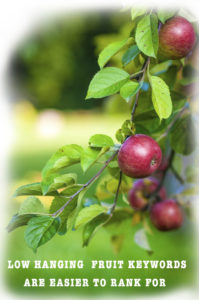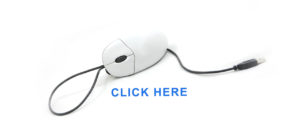There is so much hype around Keywords and Google ranking and trying to determine what exactly it is Google is after. Despite there being thousands of pages written on the subject we can never be sure of a definitive answer.
On the one hand most of these articles are confusing and make ranking with keywords sound like a science known only to those with an IQ similar to Albert Einsteins. On the other hand Google is forever changing and upgrading it’s algorithms in an ongoing effort to make search results more relevant for their users.
But understanding keywords and Google ranking is not (or shouldn’t be) confusing and I’ll explain why.
Jump to …
Keyword and Content Relevance … for optimum user satisfaction
It is important to understand that Google’s Mission Statement is “to organize the world’s information and make it universally accessible and useful.”
For the purpose of rankings Google therefore likes relevance.
Google’s is only aware of what a user is after when they enter a search query, known as a keyword.
The keyword is all important in terms of what Google believes the user is looking for – but there is more, there is relevance and there is quality.
As time goes by Google constantly updates the algorithms they use to determine exactly what the customer is looking for.
These algorithms are now so sophisticated that they can almost work out what the user is thinking by the keywords they type in.
Keywords are the initial trigger that send the search engine spiders out to retrieve the most relevant information and place it in front of the user in ranking order.
Needless to say “he who ranks first on page 1 of searches, get’s the customer’s attention first” – #1 on page 1 is the place to be, the spot to strive for.
You get there by using keywords backed by excellent (and relevant) content.
Why Google Dislikes Keyword Stuffing … and won’t rank you
And Google also likes correct grammar but let’s talk “keyword stuffing” first and why google doesn’t like it.
Keyword stuffing was initially used as an SEO tactic to obtain a high ranking – but these days it is a big NO-NO!

In days gone by it was suggested that a certain percentage of a page should contain the keyword you were trying to rank for. That percentage was at times ridiculously high, as high as 10% in some cases.
Imaging reading something today that had the same word or phrase once in every 10 words. It would be insane.
As Google got wiser and tightened up their algorithms formerly high-ranking sites, stuffed with keywords, died a rapid death.
Long may they rest in peace.
Correct grammar is important too.
As humans, we don’t generally speak in “army talk” (for example: “target engage fire!” or abbreviated fashion.
Grammatically correct and concise English helps Google understand exactly what the user is after. Websites with grammatically correct keywords will feature higher in the rankings as a result.
The wool can no longer be pulled over Googles eyes.
Keywords Are Important But Content is King …
With keyword stuffing out the window what remains is “content”
By that I mean a single keyword will not rank on its own – unless it is something way out of left field.
In order to rank keywords need to be propped up with content.
I’ve already mentioned that content has to be relevant but is also needs to deliver a complete message or answer to the keyword used in the initial query.
A complete message can be short but will probably run to a few thousand words.
For example the “keyword” I am using in this post is “Keywords and Google Ranking” and in order to answer that query or search I need to try to project my mind into what the user is actually asking.
A definition of a keyword and a definition of Google rankings will probably not suffice.
If my assessment is correct the user wants to know how the two work together, if indeed they do, in order to assist with ranking his (or her) site.
I anticipate the full answer will exceed 1,000 words and may even run to twice that amount.
How to Use Keywords in Blog Posts and Website Pages … (plus ranking for LSIs)
The answer to this is quite simple.
When posting write as if you are talking to a friend and explaining to them to a subject that you are familiar, assuming they are not so familiar with the subject.
Write or speak naturally and bear in mind that you wouldn’t repeat the question they asked over and over again (keyword stuffing).
Each sentence in your answer should be relevant with examples, where appropriate. You are likely to find that your explanation expands to other subjects around the main one which are all relevant and useful to understand the main topic
These additional topics and keywords are what is known as Latent Semantic Indexing (LSI) and Google will likely rank your site/page for keywords you never targeted, but covered in your comprehensive answer.
Told you those spiders were almost human!
Keyword Search and Ranking Tool … makes your life a whole lot easier
To make things easier for us there are software programs and tools available that provide a lot of information on what are good keywords to use and what aren’t.
Google has the keyword planner that is free. Yes free!
And coming from Google itself it clearly has a lot of updated and valuable information you can use.
There are of course a lot of others keyword search and ranking tools – some are free, some cost money. Some deliver and some are, let’s say, not so good.
Do your research before jumping into one that promises the earth.
Jaaxy is the tool I use because it is included with my Wealthy Affiliate membership; see “My Top Recommendation” found in the top right-hand corner of this page for more information on Wealthy Affiliate. WA is where I learned all about affiliate marketing and top class SEO practices.
What I like about Jaaxy is that it tells you how many searches of a particular keyword are made each month, how many likely clicks you will get if you can rank on page 1 and exactly how much competition you have.
A Little Secret (just for you) …
One of the SEO Ninja tactics we are taught at Wealthy Affiliate is to use low-hanging-fruit keywords.
“What’s a low-hanging-hanging-fruit keyword?” I hear you ask.
It is a keyword that is asked fairly frequently (the more often the better) but has minimal competition; that is to say there aren’t many websites or pages with that exact phrase in them.
We are taught to look for keywords that have over 100 searches a month but less than 100 competing pages. The higher the number of searches, and the lower the number of competing pages, the easier it is to rank for the keyword.
Using my example of the keyword I plan on ranking for with this article again – “keywords and google ranking”.
Jaaxy tells me this keyword is searched 235 times a month and I am competing with only 4 other pages on the entire Internet for this exact search phrase.
There will obviously be more competition than that around similar keywords but I am in with a shot with this particular one.
And I am likely to pick up rankings with Latent Semantic Indexing as mentioned earlier.
To give you an idea of Jaaxy’s capabilities insert a keyword in the box below and see what comes up – feel free to use “keywords and Google ranking” to test what I have said above.
Keyword plus Relevant (Quality) Content = Ranking … simple
To sum it up keywords are what Google uses to determine what you are looking for when you do a search.
The search engines then locate the most relevant, high quality content they can find and show you their findings in ranking order.
More often than not there will be millions of pages of information but you are not likely to go beyond page one.
PAGE 1 IS KING!
And positions 1 and 2 on page one are prime real estate.
A bit of keyword knowledge is the first step to securing those two real estate spots and a keyword tool – such as Jaaxy takes a lot of the guesswork out of it.
Don’t forget to take a look at what Jaaxy can do for you – and yes you can try it out for free.
Read my full (and probably very biased but honest) review of Jaaxy.


2 responses to “Keywords and Google Ranking (what exactly is Google after?)”
Hi Lawrence
What a great article, loads of valuable information here.
I love your imagery, you clearly have a great sense of humour!
Thank you so much for sharing
Blessings
Louise
Hey Weezie (can I call you Weezie)
Thanks for your lovely comment.
I loved doing those images. Who says you can’t have fun just because it is work.
I hope you picked on the Mickey Mouse Look-a-like I turned Google into.
Do you think I could patent that and sell it to them?
Appreciate your comments.
Lawrence